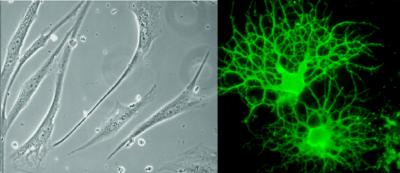For the first time ever, stem cells from umbilical cords have been converted into other types of cells, which may eventually lead to new treatment options for spinal cord injuries and multiple sclerosis, among other nervous system diseases. Dr. Davis from the University of Central Florida (Florida, USA) and colleagues set out to transform umbilical stem cells into oligodendrocytes – critical structural cells that insulate nerves in the brain and spinal cord. The team found components on oligodendrocytes that bind with the hormone norephinephrine, suggesting the cells normally interact with this chemical and that it might be one of the factors that stimulates their production.
Developing treatments for embryonic stem cells are not new. A pharmaceutical company called Geron, based in Menlo Park, CA, was able to derive a treatment for spinal cord repair based from embryonic stem cells but they don`t have an approval of FDA due to various ethical and public outcries. Geron shut down its embryonic stem cell division due to several problems regarding these issues. Scientists tell that this is the first time that stem cells were harvested from a non-embryonic source.
In early tests, the team found that norepinephrine, along with other stem cell growth promoters, caused the umbilical stem cells to differentiate into oligodendrocytes. However, that conversion was limited and did not yield therapeutically viable cells. The researchers then devised a three-dimensional environment in which they grew cells that were able to fully mature into oligodendrocytes. Further research may discover ways to inject the cells at the point of a spinal cord injury to promote repair, and the injection of new, healthy oligodendrocytes might improve the condition of patients suffering from multiple sclerosis.

 Researchers regrow corneas using adult human stem cells
Researchers regrow corneas using adult human stem cells